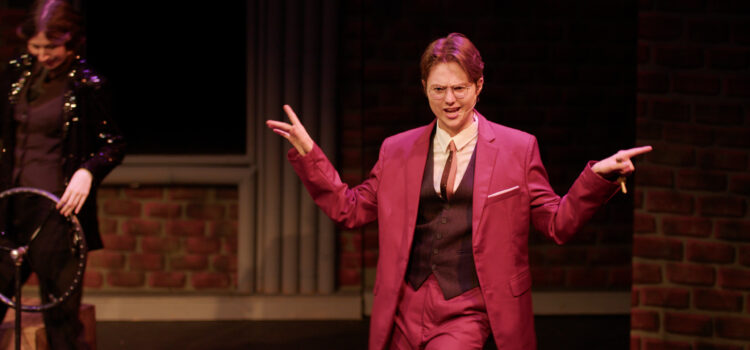By Lynn Venhaus
‘Sticking it to the man’ is a familiar theme in narrative and nonfiction works, but the Fly North Theatricals’ original musical “Big Machine” is not ordinary in any way.
With its multiple moving parts, this is a dense historical story based on true events in the 1920s, and by their own findings, largely forgotten.
This tale of two “Ethyls” – Ethyl alcohol fuel and Ethyl leaded gasoline, which were touted as anti-knock fuels in the 1920s, may need a tutorial about its rise and fall, and the harm inflicted. (By all means, Google it.)
Part “Mad Men,” part revisit of the first ‘Red Scare’ of communism (not to be confused with the later hysteria fanned in the 1940s and 1950s), and overall, a shocking news-making corporate scandal of putting profits above the public’s safety.
This controversy requires utmost attention, and while trying to connect the dots, it is easy to be distracted by workplace issues that don’t seem to be a necessary component.
Fly North has been working on this project for a long time, first commissioned by COCA in 2022. With revisions over the past two years, and a staged reading this April, the company finally mounted this ambitious, mature work that is clearly a labor of love. The effort is there, but the outcome can’t surmount the overstuffed narrative issues.
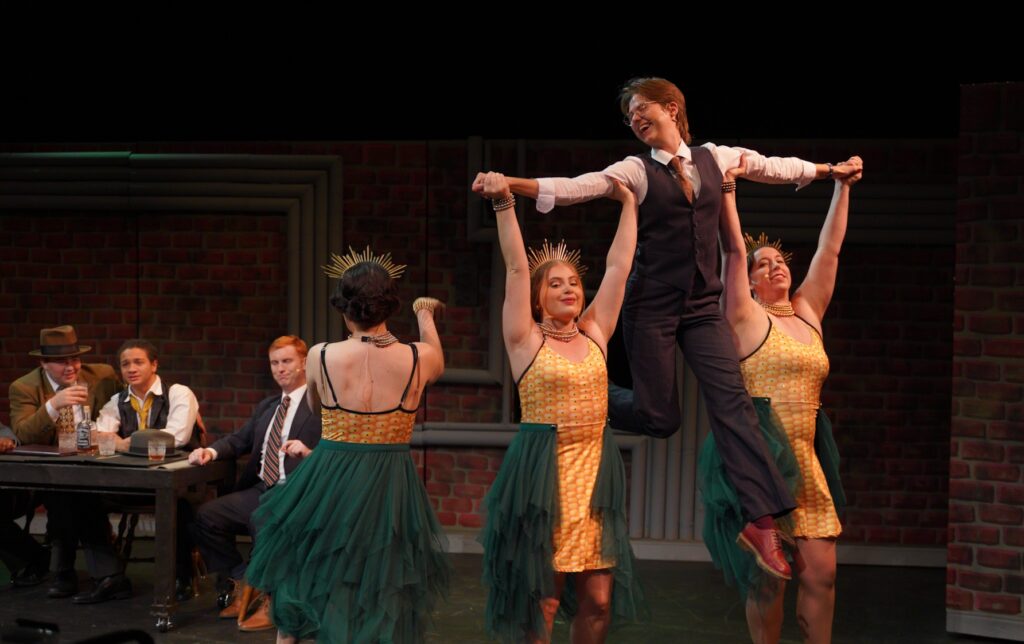
It is the star headline event in the St. Louis Fringe Festival, with performances Aug. 2-18.
Colin Healy wrote the music and lyrics, which display an intricate and intelligent knowledge of music storytelling. A devotee of Stephen Sondheim, his flair for rhyming is admirable, and his orchestrations give the score a rich, layered sound.
He has directed an impressive band: Fiona Brickey and Mo Carr on violins, Christopher Bachmann on cello (Aug. 2-4) and Marie Brown on cello (Aug. 8-18), Josh Baumgartner and Joseph Hendricks on reeds, Jacob Mreen on bass, Joe Pastor on percussion and Healy on keyboard and guitar besides conducting.
His colleague and business partner Bradley Rohlf deftly directed the deeply committed cast, which has devoted much time to this production, and it’s staged on a broad canvas.
Healy, who has written three other original musicals, including “Gringo,” “Madam,” and “Forgottonia,” founded his company in 2019, and has worked both as a musician and educator. He and Rohlf are fearless in tackling challenges and inspire a creative collaboration with new and veteran artists.
In this show, the loyalty to what Fly North is attempting is tangible, and the performers exude concern for the material they are presenting. Yet, Healy’s libretto has confusing multiple storylines that complicate the subplots, especially if viewers are unfamiliar with the historical content.
The action mostly takes place at an oil refinery in Bay of Fortune, Indiana, a division of the General Motors Chemical Company. Caleb Long’s efficient set design includes multiple parts that double as the workplace, backroom shelves, and the Olsen home.
Commanding attention is Al Bastin as an animated villain, aka “The Man Who Harmed the World the Most,” and their talents are considerable. They play Thomas Midgely Jr., who was vice president of General Motors Chemical Company and a chemical engineer who introduced a new “miracle product” that they hoped would boost declining auto sales.
A powerful vocalist, they seize control of this ethically challenged executive in an opening number, “It Works,” giving off a carnival barker vibe. Their expert salesmanship is on display in a very funny production number, “The Miracle of Corn,” in the second act, and his desperate attempt to prove the naysayers wrong in “Another Miracle.”
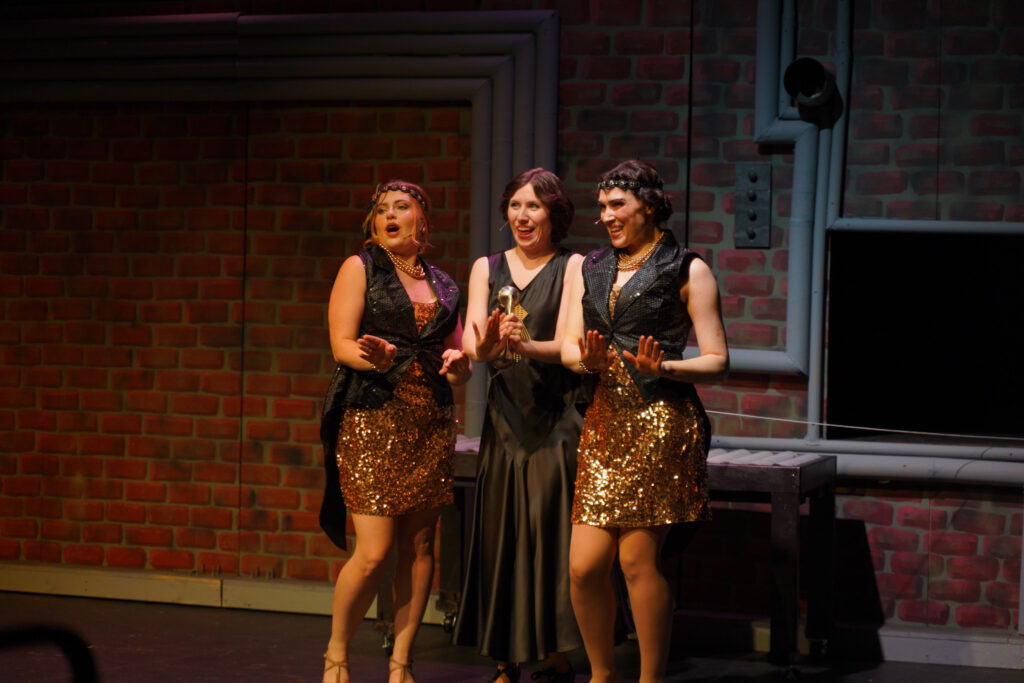
Midgely winds up a sad, pathetic figure by the time his number “Alone” closes the show. Bastin has poured their heart and soul into this role, a star-making turn.
It is unusual for a pegged ‘bad boy’ to be the lead, but not unheard of – think “Sweet Smell of Success,” “Jekyll & Hyde,” the psychotic boyfriend in “Heathers the Musical,” and even the obsessed “The Phantom of the Opera.”
But the odious character isn’t balanced by other decent characters that resonate. A widowed father, Ernest (Parker Miller), is flawed – bad employee, bad dad, alcoholic and unstable. It’s difficult to connect to him and the neglect of his sweet genius daughter, Grace (Maliah Strawbridge), is reason enough not to care.
Father and daughter sing “Can You Imagine” as an introduction to their characters. Grace, a child prodigy, has fiddled with an engine – but even that is hard to figure out.
They seem to be making excuses in his musical numbers, such as “I Never Imagined…” and “Alone, Together.” Miller’s singing voice is much stronger than his acting, for it’s hard to generate sympathy for the character because of all his bad decisions.
A romance with “Ethyl” is murky, and Mack Holtman, coyly playing this mysterious character, is clothed in black (Angel of Death?).
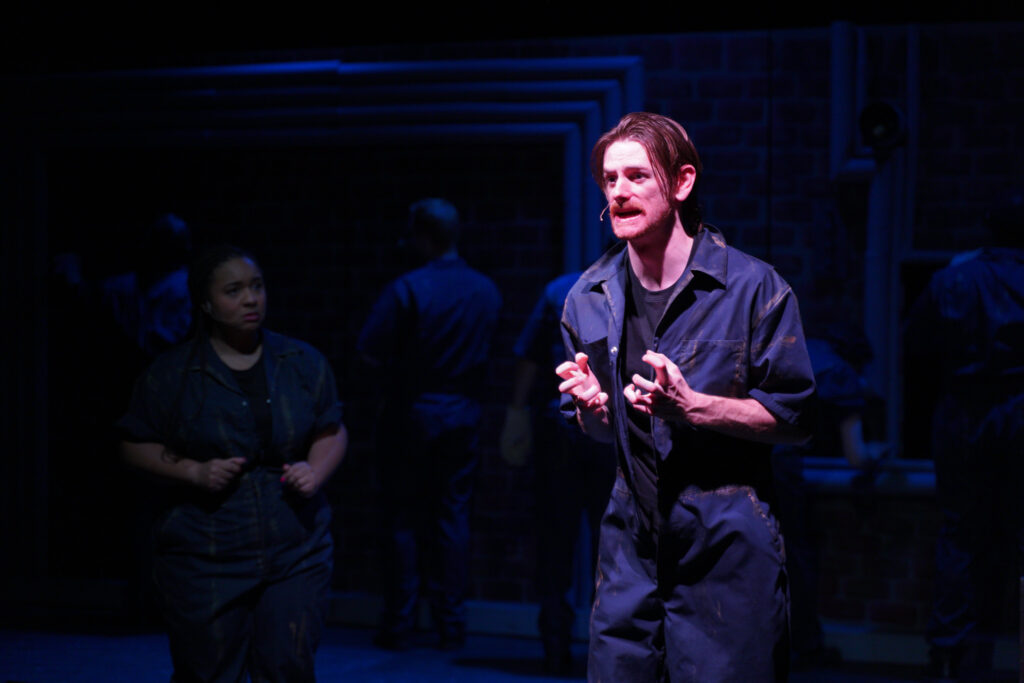
The timeline is wobbly, but here goes: Workers at the oil factory are shown as disgruntled laborers trying to get by, with Rosie (Lili Sheley) and Gilda (Corinna Redford, a spunky standout) the disrupters. They sing “The Communist Manifesto.”
A corporate ‘yes’ middleman, Methuselah (Christopher Plotts) is assured he’ll get a promotion if he rats out Communists in the work force. After the Russian Revolution of 1917, fear of anarchy and leftist radicals spread, and labor strikes were on the rise. This was framed as immigrants trying to bring down the American way of life, so corporations tried to identify workers who criticized the government.
Plotts, another character whose ‘woe is me’ attitude is ineffective, displays a soulful voice in the number “Pity the Middleman’ that further prolongs the inevitable corporate crash.
Disgruntled workers, plus labor unrest, plus corporate greed are the bulk of the action – and Ernest wasting time not working. We go back five years to a couple GM board room scenes. And a strange number “Crazy (A Brief History)” involves a bizarre Greek-chorus of a centurion (Marcus Agrippa), Queen Elizabeth I, her courtiers and reporters that add another layer of tedium.
The ensemble plays various characters – refinery workers, GM board members, dancing corn, and chorus girls: Michael Reitano, Langston Casey, Carly Fock, Dereis Lambert, Jordan Woods, Chelsie Johnston and Emma Giltner. Fight choreographer Morgan Clark handles a workers’ brawl.
Act 1 culminates in an energetic dance number, “Big Machine,” which is skillfully choreographed by Jordan Woods.
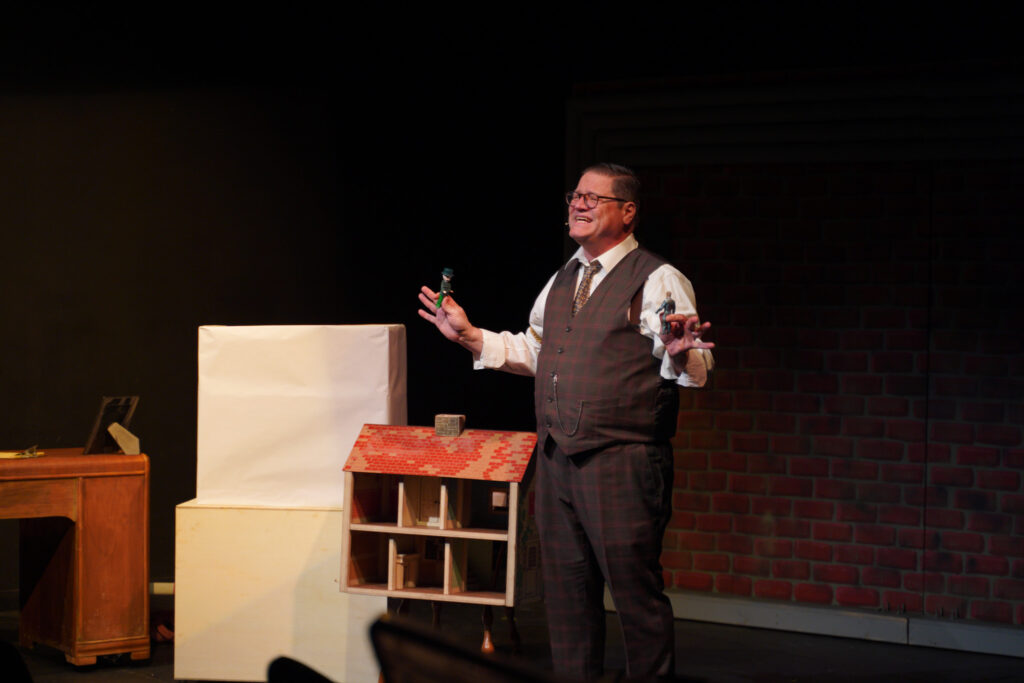
If the first act raises many questions, the second act has too many loose ends to adequately tie everything together. In resolving how Midgely’s ambitions crashed, a parallel story is how a workplace accident involving Ernest’s daughter settles to his advantage. While we root for Midgely’s comeuppance, Ernest’s resolution is not earned.
Eileen Engel’s costume design fits the period and the characters, Kel Rohlf’s prop design includes a bathtub, and Tony Anselmo’s lighting design effectively sets the atmosphere.
Phillip Evans’ sound design is blaring, with characters trying to be louder than the performers they are interacting with, or next to on stage. This may be overcompensation because of recent issues Tesseract Theatre Company had at the Marcelle last month.
While the music score has promise, the story is unsatisfying and far too complicated to invest in, despite performers trying very hard to sell it.
Fly North Theatricals presents “Big Machine” in two acts with one 15-minute intermission, and the run time is 2 hours and 15 minutes. Performances are at 7:30 p.m. Aug. 9-11 and Aug. 13-17, with 2 p.m. matinees on Aug. 17-18, at the Marcelle Theatre, 3310 Samuel Shepard Drive, St. Louis, in the Grand Center. For more information or tickets, visit www.flynorthmusic.com
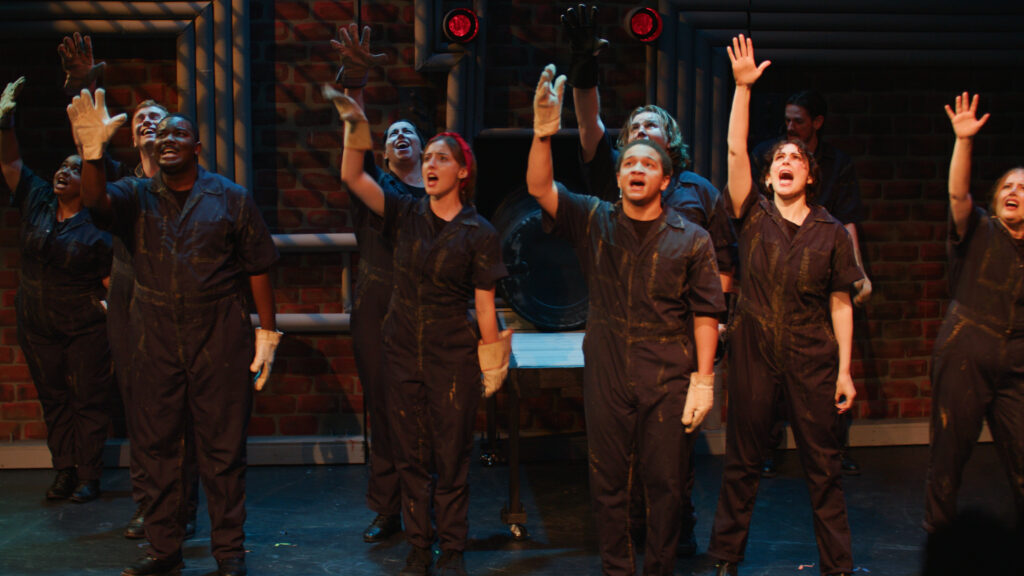

Lynn (Zipfel) Venhaus has had a continuous byline in St. Louis metro region publications since 1978. She writes features and news for Belleville News-Democrat and contributes to St. Louis magazine and other publications.
She is a Rotten Tomatoes-approved film critic, currently reviews films for Webster-Kirkwood Times and KTRS Radio, covers entertainment for PopLifeSTL.com and co-hosts podcast PopLifeSTL.com…Presents.
She is a member of Critics Choice Association, where she serves on the women’s and marketing committees; Alliance of Women Film Journalists; and on the board of the St. Louis Film Critics Association. She is a founding and board member of the St. Louis Theater Circle.
She is retired from teaching journalism/media as an adjunct college instructor.

